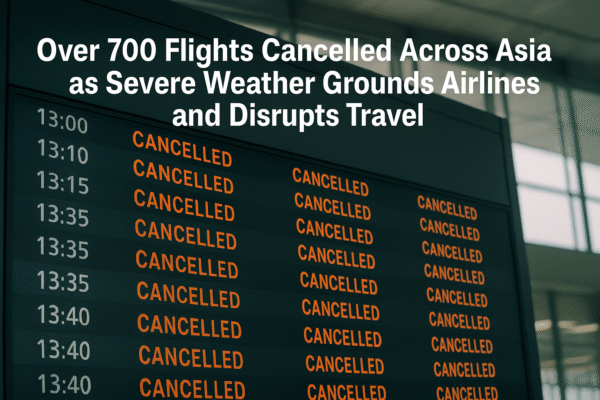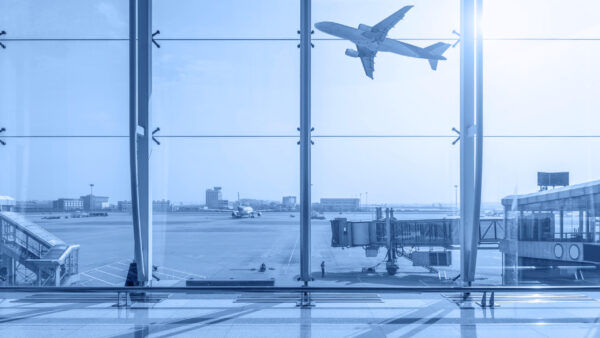KUALA LUMPUR, July 21, 2025 — Malaysia has become the latest country to suffer a widespread immigration system breakdown, leaving thousands of international travelers facing long queues and delayed entry at airports and land border crossings. The malfunction, which struck more than 200 of the country’s automated immigration gates, occurred during a peak travel period, amplifying the impact across key transit points including Kuala Lumpur International Airport (KLIA), the Bangunan Sultan Iskandar (BSI) checkpoint in Johor, and the Sultan Abu Bakar Complex (KSAB).
Malaysia now joins countries like the United States, Canada, United Kingdom, Japan, Australia, France, and Singapore, which have all experienced recent large-scale failures in their immigration processing infrastructure.
Autogate Malfunction Paralyzes Entry Points Across Malaysia
The failure, affecting Malaysia’s MyIMMS (Malaysian Immigration Management System), disrupted automated passport verification for foreign nationals, forcing a shift to manual processing. While Malaysian citizens were able to proceed with minimal delays, foreign travelers—including those from nearby Singapore and other ASEAN countries—experienced severe congestion.
Photos shared across social media platforms depicted long queues snaking through terminals at KLIA’s Terminals 1 and 2, as well as jammed border crossings into Johor Bahru. Immigration halls were overwhelmed, and travelers reported waiting upwards of three hours during peak hours.
Key Locations Affected:
- KLIA Terminals 1 & 2: Main gateway for international arrivals, with long wait times at all immigration counters.
- BSI CIQ Complex (Johor): Major entry point for Singapore-Malaysia land crossings.
- KSAB CIQ (Johor): Key checkpoint on the Second Link between Malaysia and Singapore.
According to Malaysia’s Immigration Department, more than 1,500 autogates are installed nationwide, with over 200 affected by the outage.
Root Cause: Data System Failure, Cyberattack Not Ruled Out
Authorities traced the issue to a data integration failure within MyIMMS, which prevented proper biometric and passport data verification. The malfunction disabled the automatic gates’ ability to cross-reference travelers’ identities and travel histories with border databases.
While initially believed to be a routine technical fault, officials are now investigating the possibility of a cybersecurity breach or system sabotage. The Home Ministry has launched a formal inquiry in cooperation with national cybersecurity agencies, and promised a comprehensive audit of MyIMMS.
This isn’t the first time Malaysia’s immigration system has faltered. In December 2024, a network switch failure at the BSI checkpoint led to similar delays, prompting concern over recurring vulnerabilities in the country’s border control technology.
Peak Travel Season Worsens the Impact
The incident comes during a particularly busy travel window for Malaysia, as summer tourism reaches its annual high. The autogate system, which was extended to travelers from 63 visa-exempt countries such as Singapore, Japan, Australia, and South Korea, plays a vital role in efficiently processing the influx of foreign visitors.
The failure forced immigration officers to rely solely on manual passport stamping, significantly reducing processing speeds. Extra personnel were deployed at major points, but were quickly overwhelmed.
Government Responds With Contingency Measures
In response, the Immigration Department of Malaysia has activated contingency protocols:
- All available immigration counters are now staffed.
- Real-time updates are being shared via official social media and KLIA’s information systems.
- Travelers are urged to arrive at least three hours early for international departures.
- Airlines have been advised to adjust check-in and boarding times to accommodate processing delays.
Immigration Director-General Datuk Ruslin Jusoh confirmed that system restoration efforts are underway, but no definitive timeline has been announced.
A Global Pattern: System Failures in Immigration Infrastructure
Malaysia’s current crisis echoes a troubling global pattern of immigration technology breakdowns:
- United Kingdom (May 2024): A nationwide e-gate failure caused multi-hour delays at Heathrow, Gatwick, and Manchester airports.
- Australia (2022): SmartGate failure disrupted arrivals for both citizens and tourists at Sydney and Melbourne airports.
- France (2022): Paris Charles de Gaulle’s PARAFE system malfunctioned, prompting temporary manual processing.
- Canada (2022): Disruptions at Toronto Pearson’s Primary Inspection Kiosks caused significant backlogs.
- United States (2021): APC kiosk outages at major airports including JFK, LAX, and Miami created long immigration lines and missed connections.
Experts note that while automation has improved efficiency at borders, the reliance on centralized databases and integrated systems creates single points of failure.
Lessons for Malaysia and the Global Aviation Industry
Malaysia’s breakdown underscores the urgent need for resilient immigration systems capable of withstanding both technical disruptions and cyber threats. As international passenger volumes surge post-pandemic, industry leaders are calling for greater investment in:
- System redundancy and fail-safes
- 24/7 cybersecurity monitoring
- Cloud-based immigration solutions
- Better-trained human backups for manual processing
- Regional cooperation for real-time traveler data sharing
ASEAN, through initiatives like the ASEAN Smart Tourism Corridor, is exploring a shared digital infrastructure that could reduce strain on national systems during peak periods.
What Travelers Should Know
Until Malaysia’s autogate system is fully operational again, international travelers are advised to:
- Monitor updates via Malaysia Immigration Department’s Facebook and official KLIA website.
- Allow additional buffer time at airports and land checkpoints.
- Keep paper copies of travel documents as backup.
- Avoid traveling during peak hours when possible.
- Consider alternative routes, especially for land crossings with Singapore.
Looking Ahead: A Call for Smarter Borders
As Malaysia works to restore confidence in its immigration system, this event should prompt governments worldwide to evaluate the digital resilience of border technologies. The increase in automated entry points must be matched with robust back-end support, both to prevent failure and to manage breakdowns swiftly when they occur.
For a country aiming to be a leading travel hub in Southeast Asia, Malaysia’s border systems must evolve to meet growing international demands—safely, efficiently, and without compromise to national security.
For more travel news like this, keep reading Global Travel Wire






















